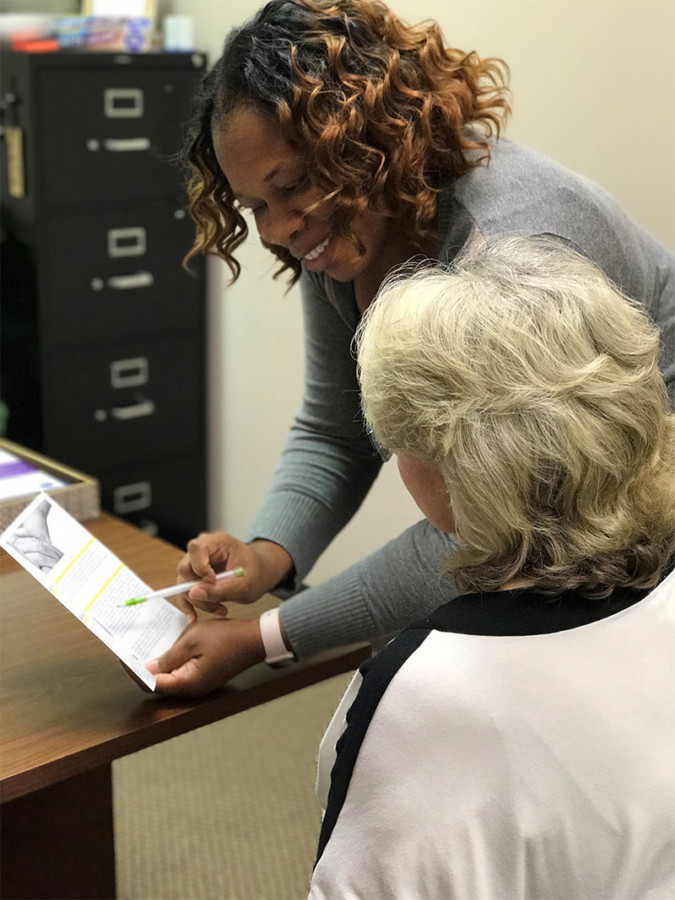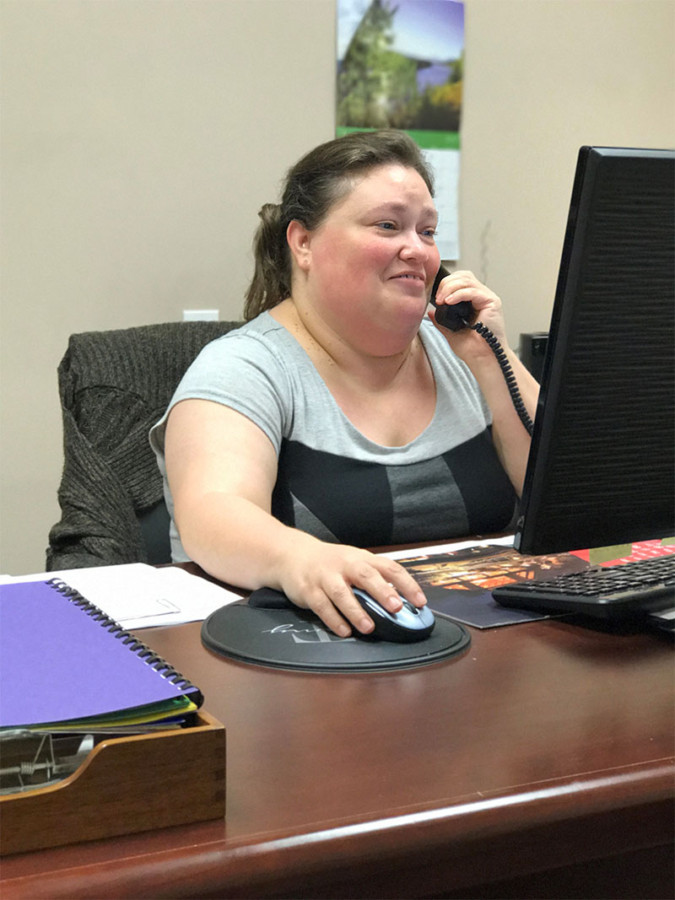
Yolanda Bean, ADRC supervisor at CAAC, puts Community Health Worker Training to use with her team.
Through the work of the Central Alabama Aging Consortium (CAAC), people who are aging or who have disabilities in Autauga, Elmore and Montgomery counties can access health, education and social service resources to enhance their lives and support their independence.
The CAAC recently partnered with The Wellness Coalition’s REACH program in order to enhance the health and wellness resources of the people who choose to receive CAAC’s services. The nine specialists of CAAC’s Aging and Disability Resource Center (ADRC) received Community Health Worker training in order to become more familiar with how to:
- Link the community to the Healthcare.gov insurance marketplace
- Refer people to medical homes
- Access resources to better manage their chronic health conditions
The ADRC is the front line of CAAC’s operation; the specialists who make up the ADRC field phone calls and walk-in inquiries from a public looking for assistance. People who call or walk into the ADRC are looking for help, but don’t always know what is available to them. Sometimes these inquiring consumers are satisfied with information that can be provided to them outside of an in-depth intake process, and about 45% of them commit to the intake process in order to determine further services for which they qualify.
This intake process has always included questions concerning personal health such as:
- Does the consumer get enough food daily?
- Can the consumer afford their medications?
- Does the consumer have a doctor?
However, according to Tammy Bartlett, one of CAAC’s ADRC specialists, The Wellness Coalition’s Community Health Worker training expanded the opportunities for education and guidance during the intake process.
“CHW training brought more to the forefront of my conversations with consumers,” said Tammy. “It broadened, for me, what help consumers need.”

Tammy Bartlett, ADRC specialist at CAAC
Tammy went on to explain that Community Health Worker training has made the specialists more aware of how often consumers visit their primary care providers and what barriers to regular care visits they face. Conversations concerning overcoming these barriers have allowed for opportunities to address the complications related to chronic health conditions and the priority of having a medical home.
Community Health Worker training has also enabled the specialists to have conversations with consumers about the consequences of not filling or refilling medicine prescribed for chronic conditions when they are faced with difficult household budget decisions.
Once Tammy and other ADRC Specialists have completed their intake process and provided what services they can, they attempt to follow up with these same consumers to see if they need further assistance or to determine if the consumer was aided by recommended services.
The majority of people with whom she reconnects are happy to report that they have benefited from her assistance. Some have even reported that her assistance has relieved them from the desperate situation they were in when they first called her.
The Wellness Coalition thanks Tammy and all the ADRC specialists at CAAC for incorporating Community Health Worker services into their important work and enhancing their efforts to enable individuals to better manage their own health.
To learn more about Community Health Worker training, call 334-293-6502.
